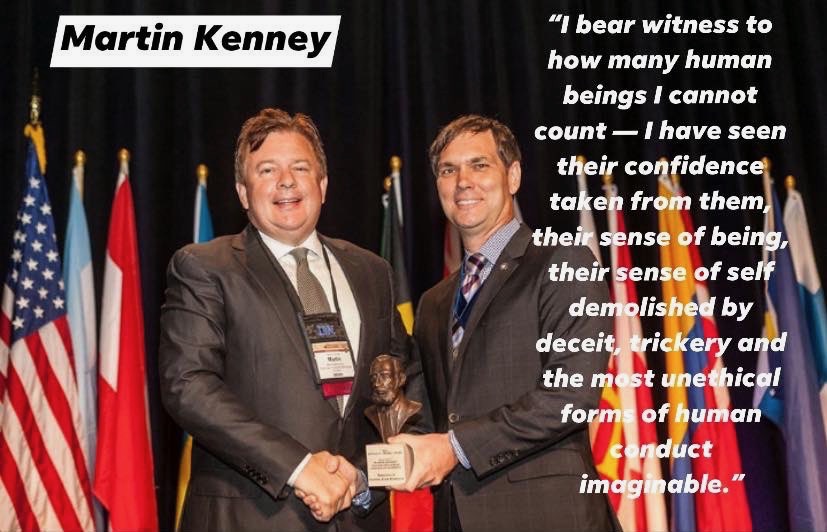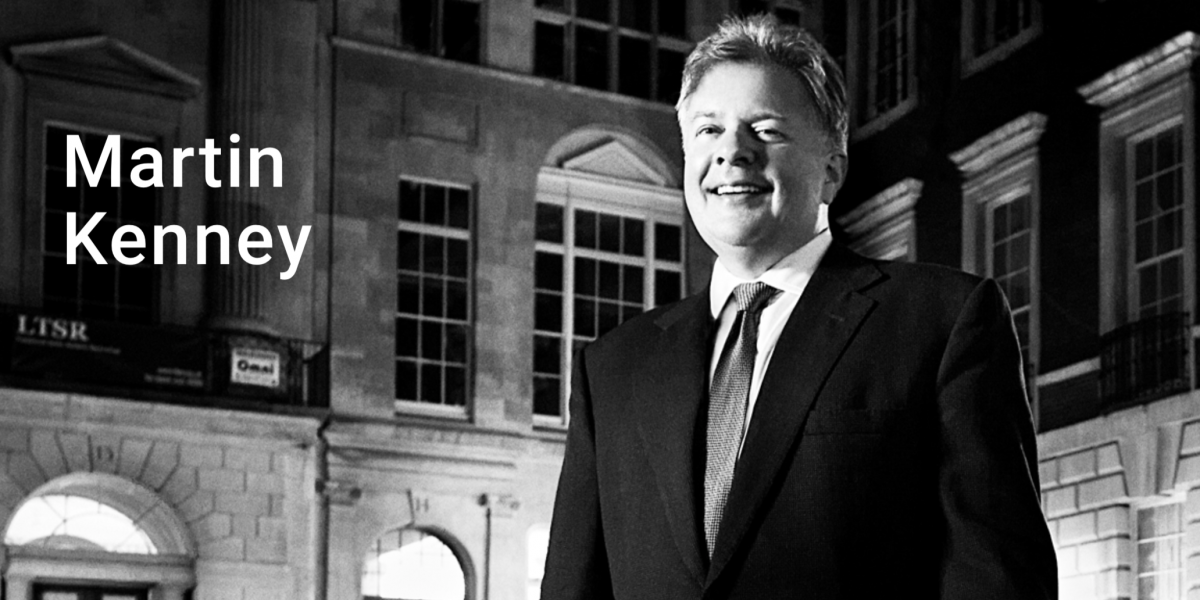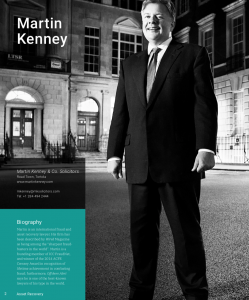WWL says
Martin Kenney is a “real mover and shaker in the market” and he receives strong international endorsements in this year’s guide. Read Who’s Who Legal’s interview with the world number 1 asset recovery lawyer offshore.
QUESTIONS & ANSWERS
Martin is one of the world’s leading asset recovery lawyers, ranked by WWL as the number one asset recovery lawyer in the offshore world. Based in the British Virgin Islands, Martin is founder and managing partner of Martin Kenney & Co, Solicitors. Martin has received numerous plaudits: Wired characterised his firm as “the world’s sharpest fraudbusters”, while The Financial Times deemed him a “top international asset chaser”.
What do you enjoy most about working in fraud and asset recovery law?
The world of fraud and asset recovery is dynamic and ever-changing. No case is the same, and you are pitching your wits against some of the most accomplished criminal and legal minds. Every day is a challenge, thinking strategically is mandatory. The work can be exhausting yet rewarding.
How does Martin Kenney & Co Solicitors distinguish itself from the competition?
We have the experience and knowledge that makes a difference. I have surrounded myself with a team that has deep knowledge in a highly specialised field. We are selective about which cases we take on; we don’t take on defence work, opting to represent only those who have been wronged.
Strategy is an important aspect of asset recovery work. How do you go about deciding what approach to take for a case?
No two cases are the same; the multi-jurisdictional issues alone demand a variety of approaches. Each case has to be dealt with on its merits. I need to identify which team members will be best for the task; we need square pegs for square holes. The troops need to be assigned to the right tasks. Like a game of three-dimensional chess, out-thinking our opponent is assisted by experience.
What role are you now seeing third-party funders (TPFs) play in asset recovery-related litigation?
We have been using TPFs since 1997. They enable victims who simply no longer have money, or who are not prepared to take risks to mount a case to get justice. But it is a complex world and experience is essential, otherwise you simply fail to convince the funders that their investment will reap rewards. TPFs are the future, and we must work together to not only look after the client, but also to make a case commercially viable.

With the increased use of big data and e-discovery in asset recovery, what new skills do lawyers require to provide effective counsel to clients?
The world of big data demands an understanding of IT and software capabilities. That’s why we have individuals on the team who understand the complexities and capabilities of the systems. We are currently beta testing a new system that searches for links between banks and email addresses globally. The results are promising. Being able to illustrate the software potential to the client is sometimes essential to moving a case forward.
What particular challenges are faced when working on cases that have lasted 20 years or more?
Keeping the team motivated is a challenge. Lawyers are no different to anybody else; they are always looking towards the next new case. I don’t want them to become stale so there has to be a balance between maintaining the old cases and letting them loose on the new.
Where, in your opinion, does the future of the practice area lie?
I think TPF is an area we must develop. We need to not only educate lawyers in our field, but also to identify and formulate better, more detailed claim summaries and financial projections before tendering them to TPFs. Understandably they don’t part with their funds easily. We need to give them the confidence to invest in us.
Looking back over your career, what has been your proudest achievement to date?
A little over two years ago, the BVI was shattered by Hurricane Irma. My offices, along with people’s homes, were severely damaged; members of my team were evacuated back to the UK, the USA, etc, and the future looked grim. We lost a number of clients who understandably couldn’t wait for us to rebuild. We have rebuilt our homes and the firm. In fact, today our firm is as busy as it has ever been.


